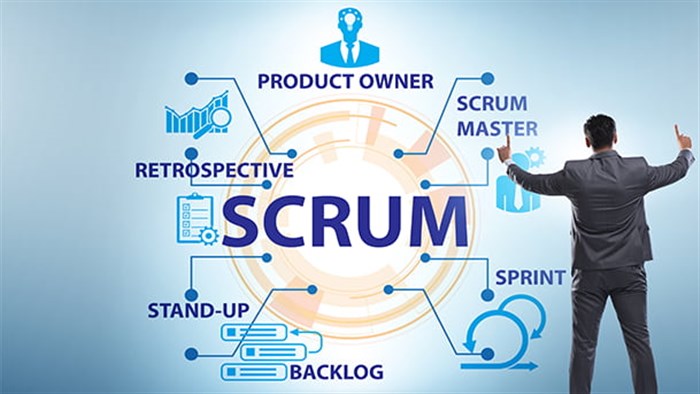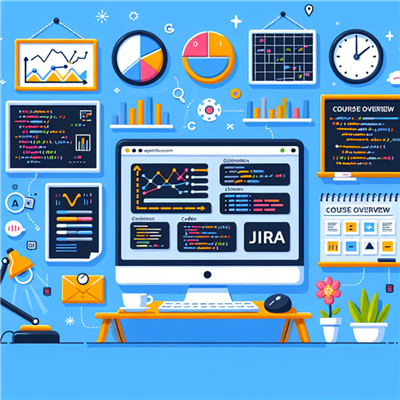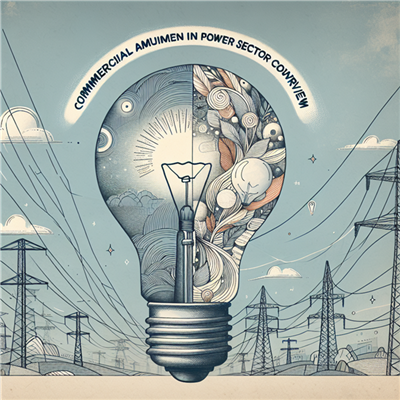
Since its first full implementation in 1993, the Scrum framework has grown rapidly. According to The State of Agile report 2022, 87 percent of the respondents use the Scrum methodology at the team level. With this level of popularity and usage, scrum masters are in high demand all across the world.
According to a study.com report, the role of the scrum master will grow by an annual rate of 24 percent by 2026. This can be primarily attributed to the sharp increase in the implementation of Agile methodology in organizations. In this article, we’ve dived deep into the role of a scrum master, how to become a scrum master, and the basics of Scrum.
Read on to learn more.
What is Scrum?
Scrum is an agile project management framework that helps teams to work well together. It does so by helping them structure and manage their work by following certain principles and practices. At its core, Scrum follows the principle of continuous improvement. Teams strive to learn from their experiences, reflect on their wins and losses, and incorporate feedback from clients and customers in their work while following Scrum. Other things they can do are as follows.
-
Give deliverables on time
-
Leverage time, money, and resources efficiently
-
Offer better visibility to each member of the team
Scrum is used for developing complex projects. Under this methodology, short development cycles, called sprints, are used to ensure continuous improvement of the product or service.
Who is a Scrum Master?
Now that you understand what scrum is, let us move on to what a scrum master is. A scrum master is a professional leading a team during a project using Agile project management strategies. The scrum master uses the scrum project framework to facilitate communication and collaboration between the team, product owners, and leaders to ensure the project’s success. Scrum teams do not have a hierarchy and thus, the scrum master is alone not responsible for the project’s success.
Related: What Is Certified Scrum Master Certification?
Roles and Responsibilities of a Scrum Master
A scrum master has many responsibilities. Some of them are as follows.
-
Ensuring incorporation of agile practices in work
-
Ensuring a good relationship between the product owner and the team, and between the team itself
-
Supporting team members in their work
-
Facilitating conflict resolution
-
Leading daily meetings and updating project management tracking tool
-
Coaching the team on best practices
Let us discuss some of them in detail.
Coach Team Members
One of the primary responsibilities of a scrum master is to coach all team members on Agile values and framework, scrum theory, and adhere to scrum practices. They ensure that all team members are aware of their responsibilities and accountabilities. They work to instill a shared sense of ownership and commitment among the team members.
Assist the Product Owner
The product owner develops the product backlog and communicates the product goals the backlog aims to reach. The scrum master assists the product owner to execute their duties effectively. They help the product owner in managing the product backlog better.
Keep Everyone Informed
The scrum master is responsible for keeping every interested party in the project updated about the progress. They host daily meetings to receive updates and address potential issues. They also schedule meetings with stakeholders to discuss the state of the project.
Implement Best Practices
The scrum master creates the project teams and takes care of the onboarding process. They provide the team members with the vision and objectives of the product, regular feedback, and monitor progress. They implement the Agile best practices and foster a culture of growth and learning.
Lead Daily Meetings
Scrum masters host and lead daily meetings to discuss the achievements and progress of the team. They also discuss potential roadblocks and plan for the day. The idea is to keep the team organized and updated through these meetings.
Introduce Agile Engineering Practices
Scrum masters use continuous integration and automation to increase efficiency in the team. They also use pair programming to ensure effective collaboration between programmers. The main aim of these practices is to improve product quality.
Related: Upskill yourself with a SCRUM Master certification
Skills Required for a Scrum Master
Scrum masters require many technical and soft skills to do their job successfully. Let us discuss them.
Technical skills
Here are some of the technical skills scrum masters must have.
Software Development
Scrum masters often work in software development teams. As their responsibilities include understanding the overall progress of the project, solving any potential problems, and participating in all parts of product development, they must be well-versed in software development. This will help them develop better software products.
Project Management Skills
Scrum masters must have deep knowledge of project management tools, including task boards, calendars, and other collaboration software. Scrum teams use task boards to organize and track their work and project progress. They also use collaboration software for documentation and communication. It is the scrum master’s responsibility to ensure efficient communication and collaboration between the team.
Business Analysis
Business analysis skills are necessary to improve a product continuously. Only when a product improves continuously can it meet the needs of customers, clients, and stakeholders.
Scrum and Agile Knowledge
This one goes without saying. Scrum masters should be experts in Scrum and Agile principles. They must ensure their team follows the principles. Scrum masters must know the Scrum concepts, including daily Scrum, increment, sprint, sprint review, etc., and how to execute them.
Soft Skills
Many soft skills are also necessary for scrum masters to do their job successfully.
Problem-Solving
Problem-solving skills help scrum masters deal with complex projects well. These skills are also useful in managing and resolving conflicts between team members.
Adaptability to Change
The center of Agile development is the concept of change. The scrum master must use the Scrum framework. However, they should not be afraid to adapt it to best support the team.
Communication Skills
Excellent communication skills are necessary to mentor teams and lead meetings. They help foster a connection between the team members and inspire them to work efficiently. Since scrum masters communicate with all stakeholders and people involved in a project, they must also have good interpersonal skills.
Coaching
Scrum masters essentially coach the team members and sometimes the entire organization on Scrum best practices. As such, they must also have excellent coaching skills, identify strong and weak points, and help employees reach their potential.
How to Become a Scrum Master?
If you have reached this section on how to become a scrum master, you must have realized how lucrative this career is. So, without any extra words, let us discuss how you can become a scrum master.
Educational Requirements
Most companies prefer scrum masters to at least have a bachelor’s degree. However, it is not mandatory. The degree can be in information technology, computer science, business, or any related field. Getting a bachelor’s can also prove to be beneficial in the long term.
Get Scrum Certified
An excellent way of validating your skills is to get a scrum certification. The certified scrum master certification is highly respected and popular. Getting the certification will prove your knowledge and skills in scrum practices to the potential employer.
Technical Skills
A scrum master typically works closely with software development teams. They have to ensure the team is functioning smoothly, the project is progressing at the required speed, and remove any roadblocks. As such, it is highly beneficial for scrum masters to be familiar with tools like Jira and Asana.
Develop Coaching Skills
A major part of being a scrum master is concerned with coaching teams on the best practices and ensuring those practices are followed. They must have the skills to encourage members, learn their weaknesses and strengths, and leverage them to ensure the project’s success. They should have leadership skills and the ability to resolve conflicts that may arise during the project.
Apply for Jobs
Once you are done with your education and have developed the necessary skills, you can start applying for job roles at different online job posting platforms.
How to Become a Scrum Master with no Experience?
If you do not have any previous experience, there is no need to worry. This section will tell you how to become a scrum master with no experience.
Practice Scrum Framework
Companies look for scrum masters with deep knowledge and understanding of scrum. Try to practice applying scrum principles in different tasks, projects, and scenarios. You don’t have to be in a professional setting to apply scrum principles. You can do it on your personal projects, such as event planning or during a hobby.
Build a Network and Develop Skills
This is an important step. Start building a professional network by joining agile conferences and groups. Having a network can help you in your professional journey.
Start upgrading your skills by enrolling in online courses and programs. Learn technical skills but also focus on developing soft skills, such as teamwork and communication. Some extracurricular activities can also help you develop these skills.
Get Scrum Certification
A certification is incredibly useful in proving your abilities in front of prospective employers. It shows your expertise and deep knowledge of scrum. There are many scrum certifications you can do. This includes Professional Scrum Master through Scrum.org, Certified ScrumMaster (CSM) through ScrumAlliance, and Scrum Master by Scrum Inc.
Prepare for your Exam
Register for your exam and start preparing for it. Read the official material provided and also go through additional material. You can also watch scrum webinars. Before giving the exam, take as many practice tests as possible.
Renew your Certification
If you have cleared the exam and received your certification, you can add it to your resume. However, most scrum certifications require you to renew your certification every two years. So, pay the fees on time to keep your certification.
Scrum Master Salary and Career Outlook
The average annual salary of a scrum master is Rs. 15 lakhs, according to AmbitionBox. The annual salary ranges between Rs. 7.4 lakhs to Rs. 26 lakhs. Scrum masters with the right experience can also become project managers, senior business analysts, or senior software engineers. As their experience and expertise grow, they can also reach senior project manager, enterprise project manager, and technical project manager, among other positions.
Certifications for Scrum Masters
Many certifications are available for scrum masters. Some of the most popular ones are as follows.
Certified ScrumMaster Course (CSM)
CSM is provided by the Scrum Alliance. It is the first organization that offered certification for scrum masters and is incredibly beneficial for anyone looking to begin or advance their careers in the field. You have to take a course that includes at least fourteen hours of training to give the exam. Once you have cleared the exam, you will become a CSM.
Certified Scrum Product Owner (CSPO)
CSPO also provided by Scrum Alliance, this certification will validate your knowledge of being a product owner. It includes skills such as balancing multiple stakeholders’ requests and providing product-specific training.
Professional Scrum Master (PSM I)
Offered by Scrum.org, PSM I validates your knowledge of Scrum and your skill in applying it. If you clear the PSM I exam, you can go on to give the PSM II exam, which is more advanced.
Certified Scrum Professional (CSP)
This is the highest level certification on the product development track provided by Scrum Alliance. It helps you develop skills to improve the application of Scrum and Agile frameworks. You must become a Certified Scrum Developer before doing CSP. You also need at least three years of work experience with Agile or Scrum in the last five years.
Conclusion
This article discusses the role, responsibilities, skill requirements, and how to become a scrum master. If you ask, how long does it take to become a scrum master? There is no one answer. Different certifications have different time requirements, and different people take different amounts of time to become scrum masters.
Regardless of this, the scrum master is a lucrative career choice. The field will continue growing in the coming years as more and more organizations adopt the Scrum framework. It is recommended to get at least one certification as it will significantly raise your chances of finding a good job.







COMMENT